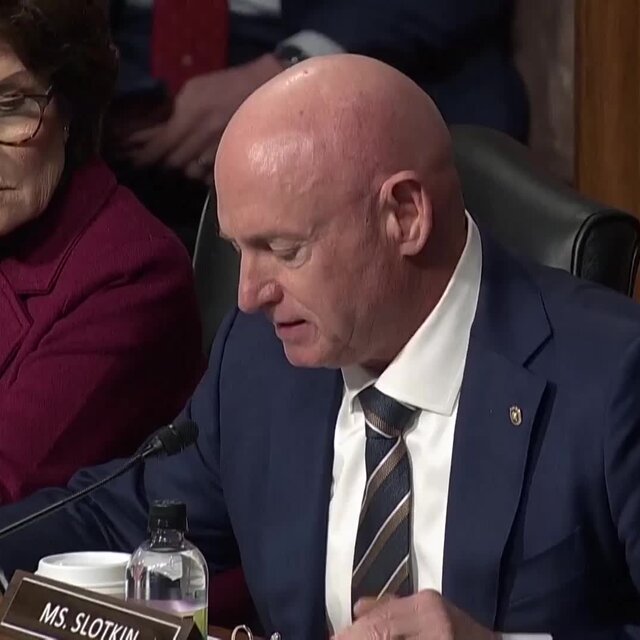Section 230 And Banned Chemicals: EBay Faces Legal Repercussions

Table of Contents
Section 230 and Online Marketplaces: A Balancing Act
Section 230 of the Communications Decency Act of 1996 is a cornerstone of internet law in the United States. It grants significant legal protection to online platforms like eBay, shielding them from liability for content created by their users. This means that eBay isn't automatically held responsible for the actions or postings of its sellers, a crucial provision given the vast amount of user-generated content on the platform. However, this protection isn't absolute. Section 230 requires platforms to act "in good faith" when moderating content. This "good faith" clause introduces a significant level of ambiguity and complexity.
The challenge for platforms like eBay lies in navigating the fine line between content moderation and censorship while adhering to the stipulations of Section 230. Overly aggressive content removal could be perceived as censorship, while insufficient moderation exposes the platform to legal liability. Determining what constitutes "good faith" is a constantly evolving legal battleground.
- Section 230 protects platforms from liability for user-generated content. This is a fundamental aspect of its design, fostering free expression online.
- However, it doesn't provide absolute immunity; platforms must act in good faith. This requirement places a considerable burden on platforms to actively manage potentially harmful content.
- The line between content moderation and censorship is frequently debated. This is a complex issue with significant implications for free speech and platform responsibility.
- Determining what constitutes "good faith" is crucial in legal challenges. The interpretation of this clause often dictates the outcome of lawsuits against online platforms.
The Sale of Banned Chemicals on eBay: A Case Study
The sale of banned or restricted chemicals on eBay presents a clear and present danger. These chemicals, often possessing significant toxicity and environmental hazards, pose serious risks to both human health and the environment. The platform's role in facilitating these sales raises substantial legal and ethical concerns.
- Examples of banned chemicals: This includes various pesticides like DDT (banned in many countries), certain solvents such as methylene chloride (restricted in many applications), and numerous other substances regulated under the Toxic Substances Control Act (TSCA) and other international treaties. (Links to relevant regulations from the EPA and other authoritative sources would be inserted here).
- Health risks associated with exposure to these chemicals: Exposure can result in a range of health problems, from skin irritation and respiratory issues to severe organ damage and even cancer, depending on the specific chemical and level of exposure.
- Environmental damage caused by improper disposal: Improper disposal of these chemicals can contaminate soil and water sources, leading to long-term environmental damage and harming ecosystems.
- eBay's legal liability for failing to prevent the sale of banned substances: eBay's failure to adequately monitor and prevent the sale of such materials exposes it to significant legal and financial repercussions.
Legal Repercussions and Potential Outcomes
eBay is increasingly facing legal scrutiny for its role in facilitating the sale of banned chemicals. Several lawsuits and regulatory investigations are underway, focusing on the platform's responsibility in preventing the distribution of hazardous materials.
- Specific examples of lawsuits or regulatory actions against eBay: (Links to news articles and legal documents detailing specific cases would be inserted here).
- Potential financial penalties for non-compliance: Depending on the severity of violations and the outcomes of legal proceedings, eBay could face significant financial penalties, including substantial fines and legal fees.
- Damage to eBay's brand and loss of consumer confidence: Negative publicity surrounding the sale of banned chemicals can severely damage eBay's reputation and erode consumer trust.
- Potential changes to eBay's policies and enforcement procedures: The legal challenges are likely to prompt eBay to implement more stringent policies and enhance its enforcement mechanisms to prevent future violations.
The Role of Artificial Intelligence and Machine Learning in Combating Illegal Sales
The use of AI and machine learning presents a promising avenue for improving the detection and prevention of illegal sales on online marketplaces. These technologies offer the potential to analyze vast amounts of data—including product listings, images, and descriptions—to identify patterns and flag suspicious items.
- Improved detection of banned chemicals through image recognition and text analysis: AI algorithms can be trained to recognize images and text associated with banned chemicals, significantly improving detection rates.
- Challenges in identifying subtle variations or newly developed banned substances: AI systems may struggle to identify subtly altered versions of banned chemicals or newly synthesized substances not included in their training datasets.
- Potential for bias in AI algorithms and the need for ongoing monitoring and refinement: Ensuring fairness and accuracy requires careful monitoring and regular updates to prevent bias and maintain effectiveness.
Conclusion
The intersection of Section 230, the sale of banned chemicals, and eBay's legal predicament highlights the continuous struggle to balance online freedom of speech with the crucial responsibility to safeguard public health and the environment. eBay's actions—or lack thereof—will set a precedent for other online marketplaces. While the increasing adoption of AI and machine learning offers a path towards more efficient content moderation, ongoing vigilance and refinement of both legal frameworks and technological solutions are critical. A comprehensive understanding of Section 230 and its ramifications for online marketplaces that handle potentially hazardous materials remains essential for both platforms and consumers. Stay informed about future developments in this crucial area.

Featured Posts
-
 Understanding Hegseths Role In Trumps Communication Strategy
Apr 24, 2025
Understanding Hegseths Role In Trumps Communication Strategy
Apr 24, 2025 -
 The Bold And The Beautiful April 9th Recap Steffy Bill Finn And Liams Critical Decisions
Apr 24, 2025
The Bold And The Beautiful April 9th Recap Steffy Bill Finn And Liams Critical Decisions
Apr 24, 2025 -
 Zagonetka Tarantina Razotkrivanje Filma S Travoltom Kojeg Izbjegava
Apr 24, 2025
Zagonetka Tarantina Razotkrivanje Filma S Travoltom Kojeg Izbjegava
Apr 24, 2025 -
 Decline In Border Encounters White House Statement On Canada U S Border Activity
Apr 24, 2025
Decline In Border Encounters White House Statement On Canada U S Border Activity
Apr 24, 2025 -
 Market Response To Trumps Remarks On Powell And Us Futures
Apr 24, 2025
Market Response To Trumps Remarks On Powell And Us Futures
Apr 24, 2025
